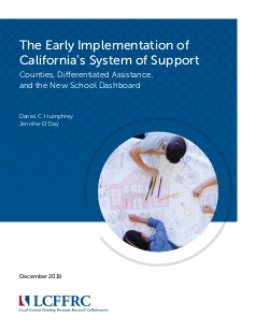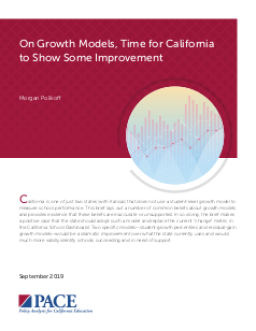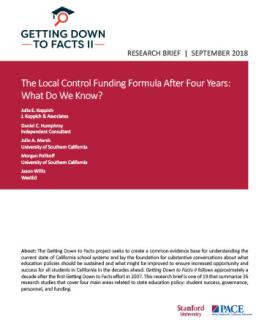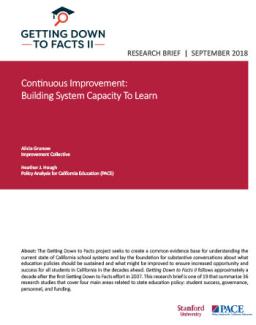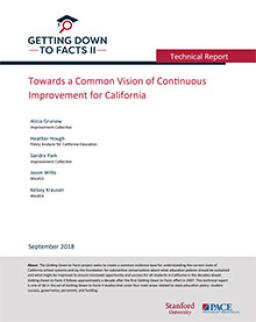Summary
This report examines the early implementation of California's Statewide System of Support, which is designed to empower local educators in determining the best approaches to improvement. While COEs and district officials hold positive views of the system's emphasis on support over compliance, they have concerns about under-resourcing and the effectiveness of the Dashboard measurement tool. The report provides five recommendations to make the System of Support a more comprehensive system aligned with the Local Control Funding Formula.
Summary
Summary
This brief analyzes the 2018 update of the California School Dashboard, examining improvements and areas for continued enhancement. Using data from the 2019 PACE/USC Rossier poll, the author characterizes use of and support for the Dashboard, finding low use, equity gaps, but high support and preference for the new Dashboard.
Summary
The Local Control Funding Formula (LCFF) shifts control of education dollars to local districts, enhancing resource allocation practices. However, inadequate base funds may constrain progress. Stakeholder engagement is evolving yet remains challenging, and school board involvement is typically modest. LCFF communication and accountability mechanisms receive mixed reviews. County offices of education have expanded their role but will need to increase their capacity. Public awareness of the LCFF lags, but it enjoys substantial support.
Summary
Continuous improvement in education involves engaging stakeholders in problem-solving to discover, implement, and spread evidence-based changes that work locally to improve student success. California sees it as central to enduring education transformation. It requires an initial significant investment in time and money to make it a reality, but can improve education quality. However, California's data systems are inadequate for helping districts monitor progress, and more training and coaching are needed to build expertise for statewide implementation.
Summary
CA is shifting the responsibility for school improvement to local school districts with County Offices of Education playing a supportive role. The focus is on local leaders driving educational improvement and ensuring quality. Strategic data use is central to the implementation of this policy, with questions remaining about what data is needed, by whom, and for what purpose. This paper provides a framework for how data use for improvement is different from data use for accountability and shares lessons from the CORE Data Collaborative on how to use data for improvement in networked structures.
